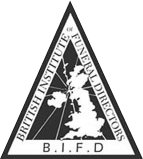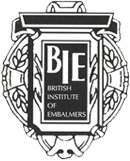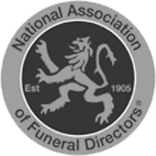Funerals
The thought of arranging a funeral is not something any of us would want to do, especially in the case of your husband, wife or children. This, together with the distress and emotional upset, leaves the bereaved unsure of what to do next. It is exactly this situation that we understand and cope with. We endeavour, under any and every circumstance, to provide the bereaved with full and fair information about all the services we can provide and information we can give.
Our service to you starts from the moment you contact us, whether by phone or by calling in to one of our branches personally, to a point beyond when the deceased is finally laid to rest.
The arrangement itself can be made at our premises or at your home if local. On your initial contact we will ask for preliminary details, whereupon we will advise bringing the deceased into our care and back to a private chapel as soon as possible ( in the case of a hospital, paperwork needs to be completed ). After initial details have been established we would then ask for a convenient time to meet and make final arrangements. At a time and place that suits the family, we will arrange the funeral to a standard and procedure that will meet the needs and requirements of the family.
For all aspects of the funeral arrangements we will point out the procedures and legal requirements as applied to every stage of the funeral.
Whilst arranging the funeral, we will advise on costs and charges to be incurred.
It is right and proper that we give you full details of the funeral expenditure. You must feel happy with the funeral commitment you have undertaken. Should this not be the case, please contact us and we will be pleased to discuss it with you further. An itemised estimate is given to comply with the Code of Practice of the National Association of Funeral Directors.
The funeral account itself, like the estimate, is divided into two separate parts: the Funeral Director’s Charges and the Disbursements.
The Funeral Director’s Charges contain our professional fees and overhead costs: these include the provision of a 24 hour a day on call rota, with the provision of a suitably dignified funeral "home call" vehicle, our professional services in making the funeral arrangements and arranging documentation and necessary personal attendances.
The conveyance of the deceased to our private chapels of rest and use of the same until the day of the funeral. Relatives and friends often wish to visit the deceased and pay their last respects before the day of the funeral. We will only allow this on the specific request of the family.
In any event whether you wish to visit your relative in our Chapel of Rest or not, we can assure you that the best that can be done for your relative, will be done
The hearse for the funeral is normally driven by your Funeral Director and bearers, can be provided by us or they can be family, friends or work colleagues. We carry out briefings for the bearers before they go into the Crematorium or Church to ensure they know what to do.
Limousines are charged for separately. This ensures that the family are not charged for something they may not need or want. The charges for the limousines are fully inclusive to cover the address at which your family require to be picked up, to the Church and/or Crematorium, through to your return to where your refreshments are to be held. Each limousine will carry up to seven passengers.
Disbursements are essentially fees that we pay on behalf of the family. This means that any requirement you have such as press announcements, church, cremation, cemetery or ministers’ fees etc. can be arranged and paid for by ourselves, to be passed on to you by way of the funeral account, which is normally sent by post, two weeks after the funeral service.
This ensures that disbursements are settled by one single payment rather than many different bills to be settled by the estate.
For the purposes of the written estimate the funeral director will estimate the approximate cost of any disbursement. However you will appreciate that we have no direct control over these charges and they could therefore be subject to slight variations. Should there be any major alteration we will advise you accordingly.
There are two cremation certificates (Forms 4 & 5). Form 4 is signed by the doctor looking after the deceased, form 5 by an independent doctor. These certificates must be paid for and will be charged as a disbursement. The cremation certificates are not required when the death is referred to the coroner.
The following information should be treated as general guidance. We are not able to guarantee the availability of a loan, but we can guide you through this process.
You may receive help if there is not enough money to pay for the funeral and you are responsible for making the funeral arrangements and you or your partner are receiving any of the following benefits:
You (or your partner) must get one or more of the following:
- Income Support
- Income-based Jobseeker’s Allowance
- Income-related Employment and Support Allowance
- Pension Credit
- Housing Benefit
- The disability or severe disability element of Working Tax Credit
- Child Tax Credit
- Universal Credit
Eligibility
To get Funeral Expenses Payment you must:
- Get certain benefits or tax credits.
- Meet the rules on your relationship with the deceased ( one of the following: the partner of the deceased when they died, a close relative or close friend of the deceased, the parent of a baby stillborn after 24 weeks of pregnancy the parent or person responsible for a deceased child who was under 16 (or under 20 and in approved education or training)
- Be arranging a funeral in the UK, the European Economic Area (EEA) or Switzerland.
You might be able to get other help to pay for the funeral if you’re not eligible for Funeral Expenses Payment.
Funeral Expenses Payment can help to pay for some of the costs of the following:
- Burial fees for a particular plot
- Cremation fees, including the cost of the doctor’s certificate
- Travel to arrange or go to the funeral
- The cost of moving the body within the UK, if it’s being moved more than 50 miles
- Death certificates or other documents
You can also get up to £700 for any other funeral expenses, such as funeral director’s fees, flowers or the coffin.
The payment will not usually cover all of the costs of the funeral.
How much you get depends on your circumstances. This includes any other money that’s available to cover the costs, for example from an insurance policy or the deceased person’s estate.
The above information is subject to change of legislation.
It is customary to place an announcement in the local or national newspaper. This serves two useful objectives, the will ensure that anyone wishing to attend the funeral service is able to, by informing relatives and friends of teh appointed time and place and it will also reduce the chance of an embarrassing encounter with an uninformed friend or neighbour.
At the time of making funeral arrangements, it is not always easy to realise the emotional benefit that is gained after the funeral by having somewhere to go, a place that you and your family can go back to, knowing that a loved one is there.
Today most cemeteries, crematoria and churches offer the facility of small plots that can be used solely for cremated remains. These ‘Cremated Remains’ graves can be visited by your family, allowing you to pay your respects and mark the grave with a memorial.
We will co-ordinate any donations received on your behalf; we usually keep the donations account open for about six weeks after the funeral to allow for further donations to be received. We will then send a cheque to the charity of your choice, who will send you a receipt and letter of thanks.
We have Chapels of Rest at each of our premises which are available in normal office hours, Monday to friday, 9am - 1pm on Saturday and up to 7pm by appointment only. You can be assured every possible care will be taken of the deceased whilst in the Chapel of Rest.
At our Regents Court Funeral Home, we have a private Service Chapel, where funeral services of all denominations can take place (seating capacity 60).
We can arrange catering at your own home, or at an arranged venue.
At the time of making arrangements for a funeral, it is not always easy or necessary to determine what your future memorial requirement will be. In the case of existing memorials, it will probably be necessary to remove the headstone from the grave prior to the funeral.
When the funeral has taken place it can take some months, depending on the condition of the ground, before the grave will be ready to take the original headstone or a new one. During this period of ground settlement, it is recommended where possible, that we remove the memorial back to our yard for safe keeping. This also reduces costs in the longer term should the memorial require additional inscriptions.
With each memorial we will give you details of work recommended to be carried out. When a new memorial is required, you may wish to call at our monumental showrooms and discuss fully your requirements together with associated costs.
If you feel we can do anything further to help you please do not hesitate to contact us, it is all part of our caring service.



